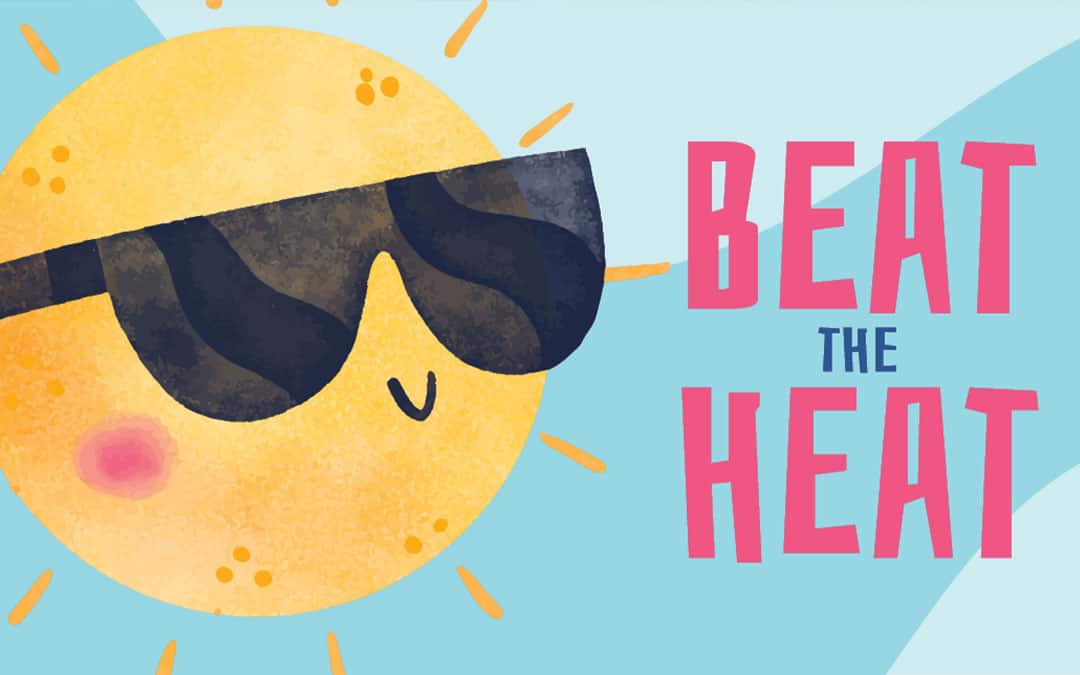When the summer heat hits hard (like it did this week), so can its effects on your health—and as a pharmacist, I see it more often than you’d think. From dehydration and heat exhaustion to medications that quietly increase your risk, extreme temperatures can sneak up on even the healthiest among us. With hotter days becoming more common, it’s worth taking a few minutes to understand how to protect yourself, your loved ones, and even your pets from heat-related illness.
The Hidden Danger of Heat
Heat doesn’t always feel threatening. But when your body can’t cool itself efficiently—especially during prolonged exposure—it can lead to serious conditions like heat exhaustion or heat stroke. According to Health Canada, high heat and humidity can quickly cause body temperatures to rise to dangerous levels, particularly in seniors, young children, and people with chronic conditions like heart disease, diabetes, or respiratory illness. [Health Canada – Extreme Heat]
Even if you’re relatively healthy, the combination of sun exposure, exertion, and certain medications can tip the balance in the wrong direction. That’s why paying attention to hydration, clothing choices, and how your body feels in the heat is essential—not just a matter of comfort.
Medications and Heat: What You Might Not Know
This is a big one that many people miss. Some commonly prescribed (and even over-the-counter) medications can affect how your body regulates temperature or retains fluid. These include:
Diuretics (“water pills”) used for high blood pressure
Antihistamines, which can reduce sweating and cause dry mouth
Antidepressants and antipsychotics, which may interfere with thermoregulation (your body’s way of dealing with heat)
Stimulants, including those used for ADHD
Certain antibiotics and acne medications, which increase sensitivity to sunlight and can worsen dehydration
The New York Times recently published a helpful piece explaining how these drugs can amplify your risk during heat waves—and why pharmacists and physicians are encouraging patients to ask questions before a heat wave hits. [NYT: What to Know About Medications and Extreme Heat (June 24, 2025)]
If you’re on any regular medications and unsure how they interact with heat, just ask. This is one of the simplest ways to stay safe and avoid unintended complications during a hot spell.
Practical Ways to Stay Cool and Safe
You don’t need expensive gadgets or fancy cooling gear to beat the heat. Most of the time, it comes down to a few smart, proactive habits:
Stay well-hydrated: Water should be your go-to. Drink consistently throughout the day—not just when you’re thirsty. If you’re sweating a lot, consider electrolyte-rich beverages, but go easy on sugary sports drinks.
Keep it shady and breezy: Stay indoors during peak heat hours (usually 11 a.m. to 4 p.m.), close blinds to keep the sun out, and use fans or air conditioning if available. Even a damp washcloth or cool shower can make a big difference.
Dress smart: Light-coloured, loose-fitting clothing is your best bet. Natural fabrics like cotton are more breathable. Don’t forget a wide-brimmed hat and sunglasses if you’re outdoors!
Cool from the core: Apply cold cloths to your wrists, neck, and ankles—or try a foot soak in cool water. These areas help regulate body temperature quickly and safely.
Plan activities wisely: If you’re exercising, gardening, or simply running errands, do it early in the morning or later in the evening. Try to avoid intense activity during the hottest part of the day.
Know the Warning Signs
Heat-related illness can come on gradually—or fast. Here’s what to watch for:
Heat exhaustion may cause dizziness, nausea, excessive sweating, muscle cramps, and fatigue.
Heat stroke is a medical emergency. Signs include confusion, rapid heartbeat, flushed or dry skin, and even fainting. If this happens, call 911 immediately and try to cool the person while you wait for help.
According to the Centers for Disease Control and Prevention (CDC), heat stroke can be fatal if not treated quickly, especially in older adults. [CDC – Warning Signs and Symptoms of Heat-Related Illness]
Medication Storage: Don’t Forget This One
Hot temperatures can also damage medications. Most prescriptions should be stored at room temperature (15–30°C), away from direct sunlight and humidity. Don’t leave them in the car or near windows. If you’re unsure whether your medication has been affected by heat, check with your pharmacy before continuing to take it.
Final Thoughts
Extreme heat doesn’t need to be frightening—but it does require your attention. Stay hydrated, stay shaded, and don’t hesitate to ask your pharmacist if you have questions about how your meds interact with the weather. We’re here to help you make informed decisions about your health—especially when conditions change.
So whether you’re heading to the beach, running errands, or just trying to survive a heat wave in the city, plan ahead. Your body—and your peace of mind—will thank you for it.

